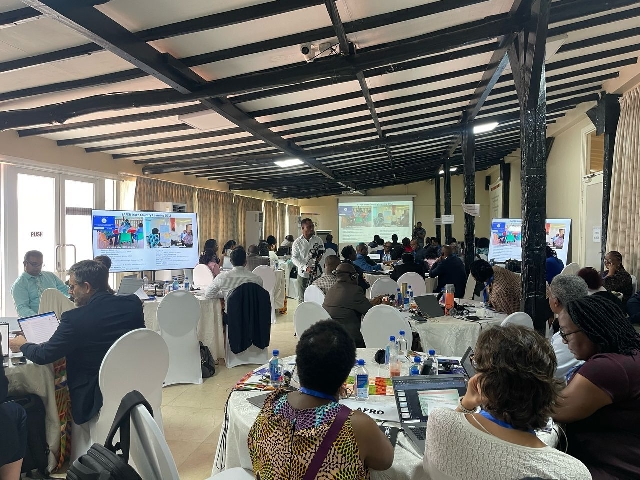Strengthening public health policies: WHO workshop urges action against alcohol industry interference
 SAFER Inter-Country Learning Workshop held in Accra, Ghana
SAFER Inter-Country Learning Workshop held in Accra, Ghana
The World Health Organization (WHO) has underscored the critical need to shield public health policy from interference by the alcohol industry.
This call to action came during the SAFER Inter-Country Learning Workshop held in Accra, Ghana, where key stakeholders from 15 African countries gathered to address the pressing issues of alcohol control and road safety.
Dr Frank Lule, WHO Representative of Ghana, highlighted the importance of establishing a robust and sustainable monitoring system to ensure accountability in implementing the SAFER Initiative.
This initiative, developed in collaboration with the Bloomberg Initiative for Global Road Safety (BIGRS), aims to combat harmful alcohol consumption and improve road safety across the continent.
The workshop brought attention to the fact that while current alcohol consumption rates in Africa were lower than the global average, the average intake per drinker was 25% above worldwide estimates. This discrepancy points to an urgent need for comprehensive policies that not only regulate alcohol availability but also implement effective measures against drink-driving.
"The protection of public health must take precedence over the interests of the alcohol industry," Dr Lule emphasised, advocating for transparent policymaking that prioritises the health of communities. He further stressed the urgent need for Member States to collaborate on developing and enforcing regulations that deter harmful drinking behaviours.
A strong monitoring system, Dr Lule noted, was essential for tracking progress and ensuring SAFER interventions were effectively implemented. This system would help hold stakeholders accountable and measure the impact of initiatives aimed at reducing alcohol-related harm and improving road safety.
As participants engage in discussions on policy development and best practices, the overarching goal remains: to foster healthier environments free from the pressures of alcohol industry influence while paving the way for safer roads throughout Africa.
Source: classfmonline.com/Zita Okwang
Trending News

President Mahama to launch 'Feed Ghana Programme' in Techiman
14:24
W/R: Police arrest 11 for illegal mining and river pollution in Tarkwa-Nsuaem
12:02
High Court reduces bail condition for former NSB Director-General and wife
15:21
Mahama to assent to removal of E-levy, Emission levy, and Betting tax – Finance Minister
06:37
Rockson-Nelson Dafeamekpor wins case against former Chief of Staff over illegal sale of Kumasi Technical University vehicles
14:08
Tain MP raises concerns over ECG’s financial mismanagement and missing containers
11:44
Bono NDC Women demand MCE appointment for Hajia Fatimatu Abubakari
16:12
A&C Mall assures vehicle owners its insurers will 'fully' cover 'necessary repairs' after parking lot collapse
02:27
Bono Regional Minister donate food items to Sunyani Central Prisons on behalf of Ibrahim Mahama
13:50
Roads Minister orders commencement of works on Ashaiman-Afienya and Tema Motorway-Dawhenya stretches
11:08




